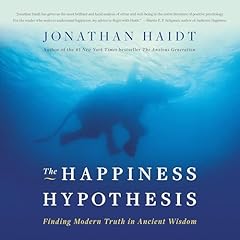
I and Thou
No se pudo agregar al carrito
Add to Cart failed.
Error al Agregar a Lista de Deseos.
Error al eliminar de la lista de deseos.
Error al añadir a tu biblioteca
Error al seguir el podcast
Error al dejar de seguir el podcast
 Exclusivo para miembros Prime: ¿Nuevo en Audible? Obtén 2 audiolibros gratis con tu prueba.
Exclusivo para miembros Prime: ¿Nuevo en Audible? Obtén 2 audiolibros gratis con tu prueba.Compra ahora por $15.90
-
Narrado por:
-
John Lescault
-
De:
-
Martin Buber
Martin Buber’s I and Thou has long been acclaimed as a classic. Many prominent writers have acknowledged its influence on their work; students of intellectual history consider it a landmark; and the generation born after World War II considers Buber one of its prophets. Buber’s main proposition is that we may address existence in two ways: (1) that of the “I” toward an “It,” toward an object that is separate in itself, which we either use or experience; (2) that of the “I” toward “Thou,” in which we move into existence in a relationship without bounds. One of the major themes of the book is that human life finds its meaningfulness in relationships. All of our relationships, Buber contends, bring us ultimately into relationship with God, who is the Eternal Thou.
The need for a new English translation had been felt for many years. The old version was marred by many inaccuracies and misunderstandings, and its recurrent use of the archaic “thou” was seriously misleading. Professor Walter Kaufmann, a distinguished writer and philosopher in his own right who was close to Buber, retranslated the work at the request of Buber’s family. He added a wealth of informative footnotes to clarify obscurities and bring the reader closer to the original and wrote an extensive prologue that opened up new perspectives on the book and on Buber’s thought. This volume provided a new basis for all subsequent discussions of Buber.
Martin Buber (1878–1965) was a Jewish philosopher, theologian, Bible translator, and editor of Hasidic tradition. He was also known as one of the paramount spiritual leaders of the twentieth century and is best known as the author of I and Thou - the basic formulation of his philosophy of dialogue - and for his appreciation of Hasidism, which made a deep impact on Christian as well as Jewish thinkers. Fleeing Nazi Germany in 1938, he immigrated to Israel, where he taught social philosophy at the Hebrew University.
©1970 Charles Scribner’s Sons (Translation); Prologue 1970 by Walter Kaufmann (P)2011 Blackstone Audio, Inc.Los oyentes también disfrutaron:




















Reseñas de la Crítica
Las personas que vieron esto también vieron:


















No idea what he said
Se ha producido un error. Vuelve a intentarlo dentro de unos minutos.
Dense but wonderful
Se ha producido un error. Vuelve a intentarlo dentro de unos minutos.
The book itself is a bit bewildering, which the writer of the introduction fully acknowledges. Buber almost seems to be writing in a stream of consciousness. Nevertheless, it’s a quick read and contains many interesting bits that aid reflection on the essential, relational nature of existence.
Four stars because it’s not the easiest read, but it’s still worth it.
Good but difficult read.
Se ha producido un error. Vuelve a intentarlo dentro de unos minutos.
More than I and Thou
Se ha producido un error. Vuelve a intentarlo dentro de unos minutos.
Great Philosophical Classic!
Se ha producido un error. Vuelve a intentarlo dentro de unos minutos.


